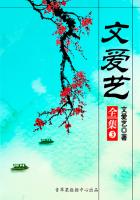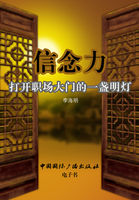And they are not regarded as monstrosities but only as the most natural of artificialities; for they are a part of a horticultural whole. To walk into a Japanese garden is like wandering of a sudden into one of those strange worlds we see reflected in the polished surface of a concave mirror, where all but the observer himself is transformed into a fantastic miniature of the reality. In that quaint fairyland diminutive rivers flow gracefully under tiny trees, past mole-hill mountains, till they fall at last into lilliputian lakes, almost smothered for the flowers that grow upon their banks; while in the extreme distance of a couple of rods the cone of a Fuji ten feet high looks approvingly down upon a scene which would be nationally incomplete without it.
But besides the delights of domesticity which the Japanese enjoys daily in Nature's company, he has his acces de tendresse, too.
When he feels thus specially stirred, he invites a chosen few of his friends, equally infatuated, and together they repair to some spot noted for its scenery. It may be a waterfall, or some dreamy pond overhung by trees, or the distant glimpse of a mountain peak framed in picture-wise between the nearer hills; or, at their appropriate seasons, the blossoming of the many tree flowers, which in eastern Asia are beautiful beyond description. For he appreciates not only places, but times. One spot is to be seen at sunrise, another by moonlight; one to be visited in the spring-time, another in the fall. But wherever or whenever it be, a tea-house, placed to command the best view of the sight, stands ready to receive him. For nature's beauties are too well recognized to remain the exclusive property of the first chance lover. People flock to view nature as we do to see a play, and privacy is as impossible as it is unsought. Indeed, the aversion to publicity is simply a result of the sense of self, and therefore necessarily not a feature of so impersonal a civilization. Aesthetic guidebooks are written for the nature-enamoured, descriptive of these views which the Japanese translator quaintly calls "Sceneries," and which visitors come not only from near but from far to gaze upon. In front of the tea-house proper are rows of summer pavilions, in one of which the party make themselves at home, while gentle little tea-house girls toddle forth to serve them the invariable preliminary tea and confections. Each man then produces from up his sleeve, or from out his girdle, paper, ink, and brush, and proceeds to compose a poem on the beauty of the spot and the feelings it calls up, which he subsequently reads to his admiring companions.
Hot sake is next served, which is to them what beer is to a German or absinthe to a blouse; and there they sit, sip, and poetize, passing their couplets, as they do their cups, in honor to one another. At last, after drinking in an hour or two of scenery and sake combined, the symposium of poets breaks up.
Sometimes, instead of a company of friends, a man will take his family, wife, babies, and all, on such an outing, but the details of his holiday are much the same as before. For the scenery is still the centre of attraction, and in the attendant creature comforts Far Eastern etiquette permits an equal enjoyment to man, woman, and child.
This love of nature is quite irrespective of social condition.
All classes feel its force, and freely indulge the feeling. Poor as well as rich, low as well as high, contrive to gratify their poetic instincts for natural scenery. As for flowers, especially tree flowers, or those of the larger plants, like the lotus or the iris, the Japanese appreciation of their beauty is as phenomenal as is that beauty itself. Those who can afford the luxury possess the shrubs in private; those who cannot, feast their eyes on the public specimens. From a sprig in a vase to a park planted on purpose, there is no part of them too small or too great to be excluded from Far Oriental affection. And of the two "drawing-rooms" of the Mikado held every year, in April and November, both are garden-parties: the one given at the time and with the title of "the cherry blossoms," and the other of "the chrysanthemum."
These same tree flowers deserve more than a passing notice, not simply because of their amazing beauty, which would arrest attention anywhere, but for the national attitude toward them. For no better example of the Japanese passion for nature could well be cited.
If the anniversaries of people are slightingly treated in the land of the sunrise, the same cannot be said of plants. The yearly birthdays of the vegetable world are observed with more than botanic enthusiasm. The regard in which they are held is truly emotional, and it not actually individual in its object, at least personal to the species. Each kind of tree as its season brings it into flower is made the occasion of a festival. For the beauty of the blossoming receives the tribute of a national admiration.















